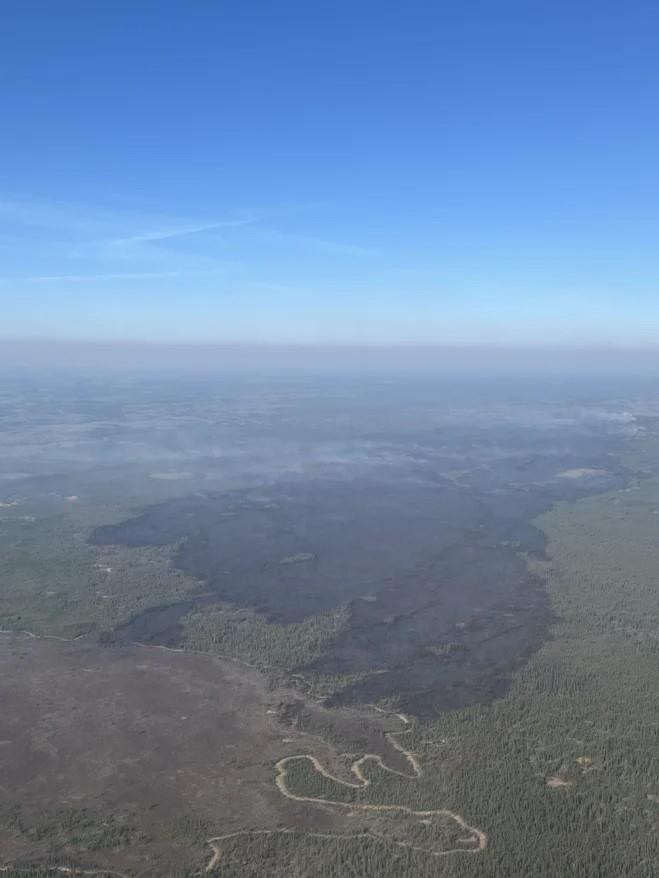FORT MCMURRAY, Alta. — Fort McMurray's mayor took to social media to deliver a pep talk Saturday as the northern Alberta city once again faces the threat of an out-of-control wildfire that's spurring memories of a massive blaze that destroyed homes and buildings eight years ago.
"I know everyone's feeling unsettled and stressed right now. Our community knows all too well how this feels, but our past experience also means we are very well prepared to handle whatever comes our way," Regional Municipality of Wood Buffalo Mayor Sandy Bowman said in a video message posted to Facebook on Saturday.
Thousands of residents of Fort McMurray and the nearby community of Saprae Creek remained on an evacuation alert as a wildfire burned approximately 16 kilometres southwest of the city, meaning they should be ready to evacuate at short notice.
That alert notice, originally issued Friday, was expanded Saturday afternoon to also include the Gregoire Lake Estates neighbourhood south of Fort McMurray, as well as Fort McMurray First Nation #468, Anzac and and Rickards Landing Industrial Park.
Alberta Wildfire said the blaze had grown to almost 1,500 hectares in size by Saturday afternoon. While the agency said fire activity was expected to pick up in the afternoon as winds increased, the municipality said those winds appeared to be pushing the flames farther south, rather than towards the city.
Highway 63, the main route from Fort McMurray to the south, remained open but the municipality said in its latest update that it was expected to close later Saturday. An alternate route, Highway 881, which connects with Highway 63 south of Fort McMurray, was expected to be unaffected.
"Our region has shown tremendous resiliency and courage in the past and know we will all pull together to help our family, friends and neighbours," Bowman said in his online video.
Fort McMurray has a population of about 68,000. A wildfire there in 2016 destroyed roughly 2,400 homes.
"The most important thing you can do is remain prepared, stay calm, stay informed," Bowman said.
"Just know that everyone involved is working hard to control this wildfire and to ensure the safety of everyone in our region."
Alberta Wildfire said heavy equipment was being used to build a fire guard on the east side of the fire south of Fort McMurray. The provincial agency said nine helicopters and airtankers worked on the fire Saturday, in addition to crews fighting the blaze on the ground.
In northwestern Alberta, other fires in the County of Grande Prairie Number 1 and the Municipal District of Greenview Number 16 had forced residents of some rural areas from their homes.
Residents of Edmonton, meanwhile, woke up to smoky skies on Saturday morning due to a fire burning in another province altogether.
Environment and Climate Change sa���ʴ�ý meteorologist Heather Rombough said most of the smoke blanketing Edmonton was coming from a fire that's forced thousands of people to evacuate in northeastern British Columbia.
The thickest smoke, which prompted a special air quality statement for the city, could clear by Sunday, Rombough said.
"But then there might be some smoke that lingers around through the next couple days, like into early next week at least," she cautioned.
The province is reminding people that drones are not allowed to be flown within five nautical miles, or 9.3 kilometers, of a wildfire since it interferes with aerial firefighting operations.
This report by The Canadian Press was first published May 11, 2024.
--By Rob Drinkwater in Edmonton
The Canadian Press



